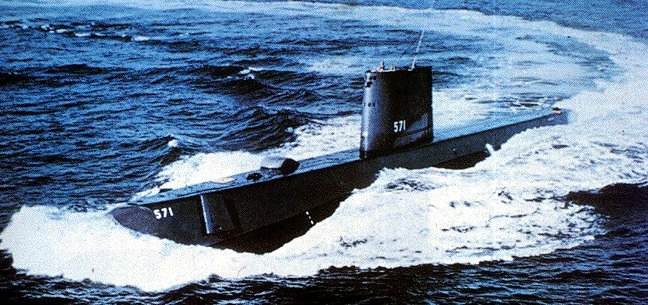
North Korea’s young leader, Kim Jong-un.
HUNTSVILLE, ALA.: The morning the news broke that North Korea could tip its ICBMs with nuclear warheads, the US general in charge of strategic deterrence said we could a learn a lot from Kim Jong-un. America prides itself on innovation, but today, said Gen. John Hyten, in matters military, our adversaries are innovating faster because they’re less afraid to fail.

Gen. John Hyten
“Right now, we are being outpaced by our adversaries,” said Gen. Hyten, head of US Strategic Command. “We’ve lost the ability to go fast and test and fail. Watch what our adversaries are doing,” Hyten told the Space & Missile Defense Symposium here. “Look at Kim Jong Un. What he’s doing is testing, failing, testing, failing, testing, failing, testing and succeeding. He’s learned how to go fast.”
Likewise, in Russia, China, and Iran, “they are going fast, they are testing in a very similar way,” Hyten continued, although Russia is still hindered by residual Soviet-era bureaucracy.
But it’s the Pentagon that is truly the world’s last centrally planned economy. “We tie the hands of our engineers and our acquisition folks because we expect every test to work and if it doesn’t, it’s on the front page of the newspapers. Just Google it,” Hyten said. “But I know what Hyman Rickover would say about it: ‘Success teaches us nothing; only failure teaches.'”

The USS Nautilus, the world’s first nuclear-powered submarine.
Adm. Rickover is the father of the nuclear navy, famous for taking nuclear-powered submarines from an idea on paper to a reality in the water within five years. That feat required shrinking nuclear reactors from the size of city blocks to just 28 feet wide. Rickover’s Air Force contemporary, Hyten noted, was German-born Gen. Bernard Schriever, who pushed the Discovery spy-satellite program to success after 13 successive failures in testing and who developed the Minuteman ICBM – still used today – for $17 billion (in today’s money) in less than five years.
By contrast, the program to replace the Minuteman, the Ground-Based Strategic Deterrent, will take up to $85 billion over two decades. Much of that time will be taken up in exhaustive, laborious testing.
“We are so risk-averse that sometimes, in some programs, we test about every 18 months because we are so afraid of failure….How did we get to the point where every test has to work?” Hyten asked. “I want it to work at the end, because when you deploy a weapons system, it has to work each and every time, (but)when you’re going through the test program, you want to push the envelope.” So what went wrong?
Some restrictions are enforced by Congress, which tends to legislate a new band-aid over every problem that pops up until the patient can’t move for all the bandages. But much of the problem is self-inflicted by the Defense Department’s culture, Hyten said.

Minuteman III test launch
When he became head of Air Force space acquisition a few years ago, Hyten actually sat down and read the regulations – the government-wide Federal Acquisition Regulation (FAR) and the Defense Department-specific DoD 5000. What he found is that every regulation contains an escape clause, a way to bypass the bureaucracy and move fast – if senior leaders are willing to take the risk. They haven’t been.
“We also have an unhealthy relationship with failure,” Hyten said. “I’m as much to blame as anybody else…. Because I guarantee you that every time that Adm. Syring, now Gen. Greaves (at the Missile Defense Agency) would conduct a missile defense test, I’m calling him up going, ‘Did it work? Did it work? Did it work?'”
“I should be calling and saying, ‘did you have a good test?’” Hyten said, one which gathered good data on what went right, what went wrong, and how to fix it next time.
“We’ve got to look at this business in a different way,” Hyten said. “We’ve got to look at this business in a different way.”
“When I say that I everybody just goes to, I’m criticizing the acquisition community,” Hyten added. “I’m not. The acquisition community does exactly what they’re allowed and told to do….It’s the budget process, it’s the Congress, it’s the Administration, it’s the Pentagon, it’s the field, it’s everybody.”
“If you want to go fast you have to empower people with the authority and responsibility to execute,” Hyten said. “This is the United States of America…. We have motivated people that love this country every day when they come to work. All we have to do is leverage that talent.”
F-35 program could reshuffle long-term upgrade plan, deliver TR-3 jets early without full capability
“I’m getting tired of over-promising and under-delivering,” F-35 program head Air Force Lt. Gen. Mike Schmidt said.


























